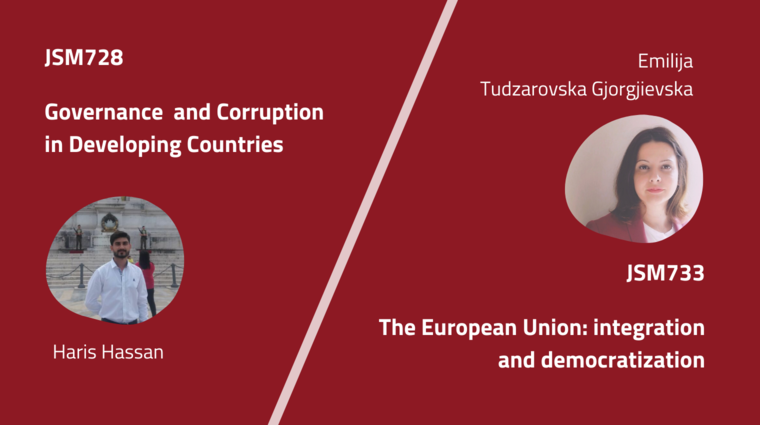Nové kurzy v angličtině JSM728 a JSM733

Nové kurzy v angličtině JSM728 a JSM733
The European Union: integration and democratization (JSM733) course is lead by Emilija Tudzarovska Gjorgjievska aims to improve the knowledge of students of the functioning of the European Union, as a Union of member states. The course aims to elaborate on the following concepts a) EU integration process (representative democracies, the role of the political parties, the national parliaments, the risks of populism/technocratic populism); b) democratization and legitimation (it's key challenges). The course will introduce students to the functioning of the European Union and its institutions. Preparatory readings will include contributions from EU integration theories, political science/political sociology and foreign policy. This course will help students to acquire knowledge about the EU challenges in the internal framework (EU nation-states/member states; representative democracies; democratic backsliding) and external framework (answers to the crisis in the global context, i.e. financial crisis, the migration crisis, Covid-19 pandemic).
Governance and Corruption in Developing Countries (JSM728) is a graduate course is lead by Haris Hassan and improves the theoretical knowledge of students on governance, corruption, and its social implications in developed as well as the developing world. As corruption has been analysed with respect to its economic consequences in terms of economic growth and foreign direct investment but to analyse corruption with respect to human rights perspective has not much been focused on. This course aims to learn about corruption impacts on human rights and well as human development, for instance, bad governance affects health and education which are the main factors of human development as well as basic human rights. However, a relationship does exist between government and corruption in the form of public spending in the social sector of an economy. Therefore, the central perspective will be put on the concept of “human rights with the lens of human development” and their practical consequences in different public & social policy areas, such as health policy, education, public spending, accountability, and criteria of good governance. These policies will be analyzed in the context of institutional perspective in developing countries mainly, as well as developed countries. The attention will be also put on the comparison between developed and developing countries in terms of good governance.

